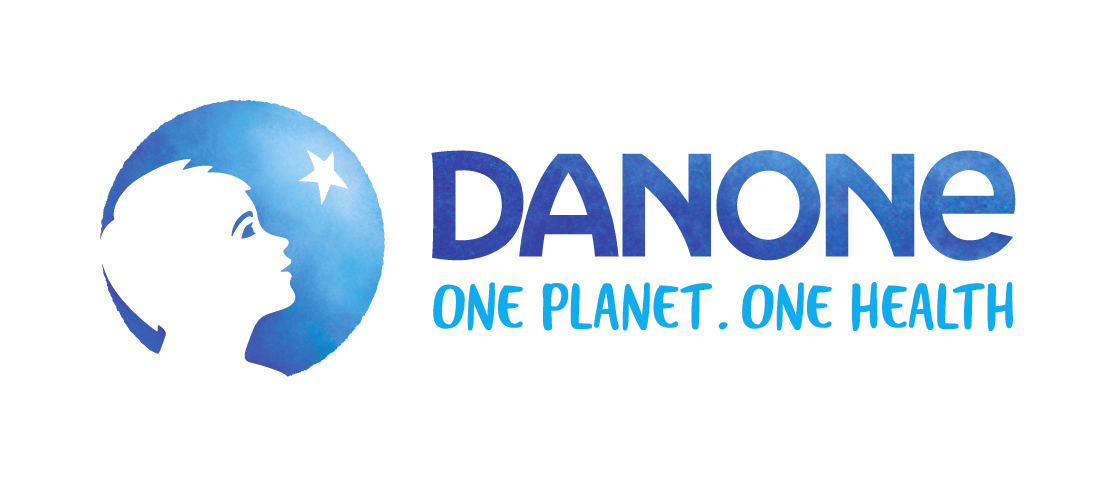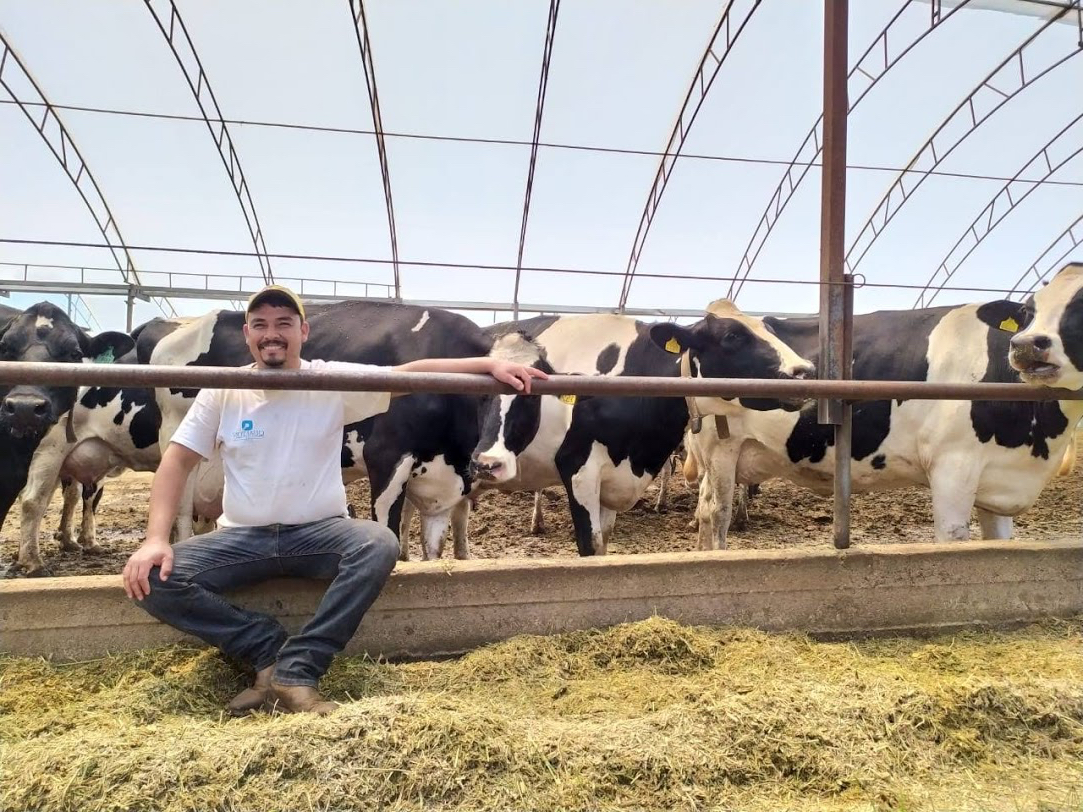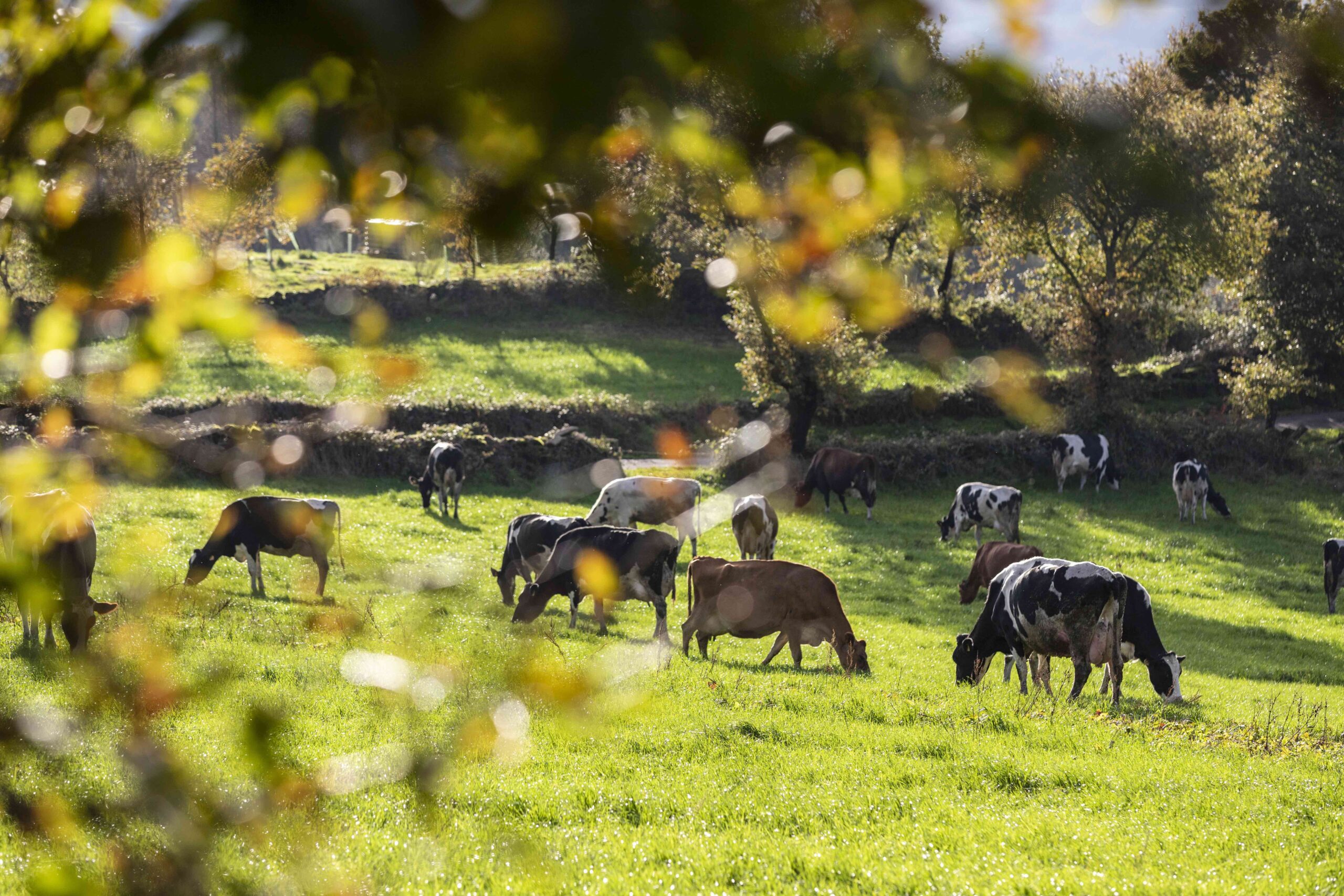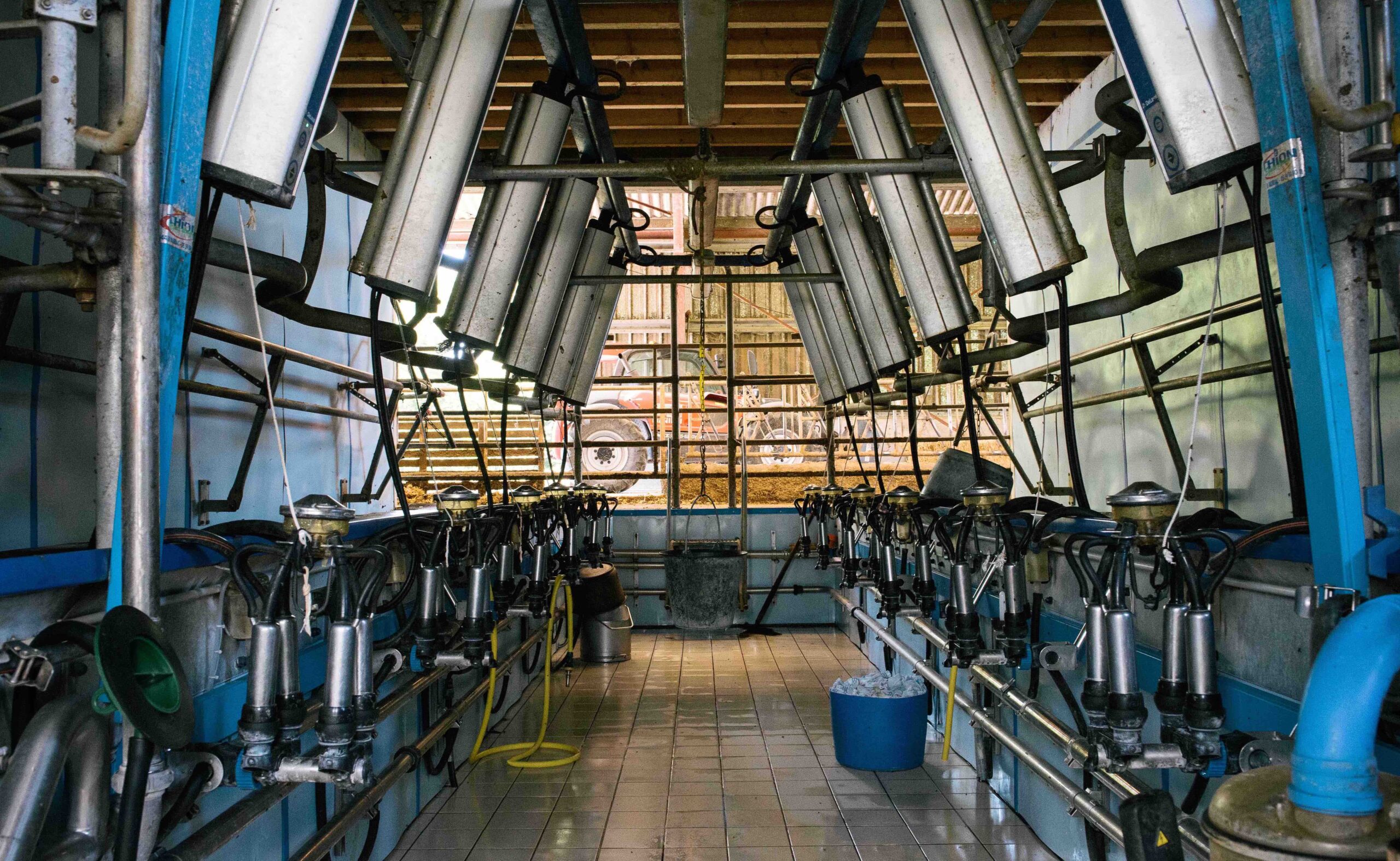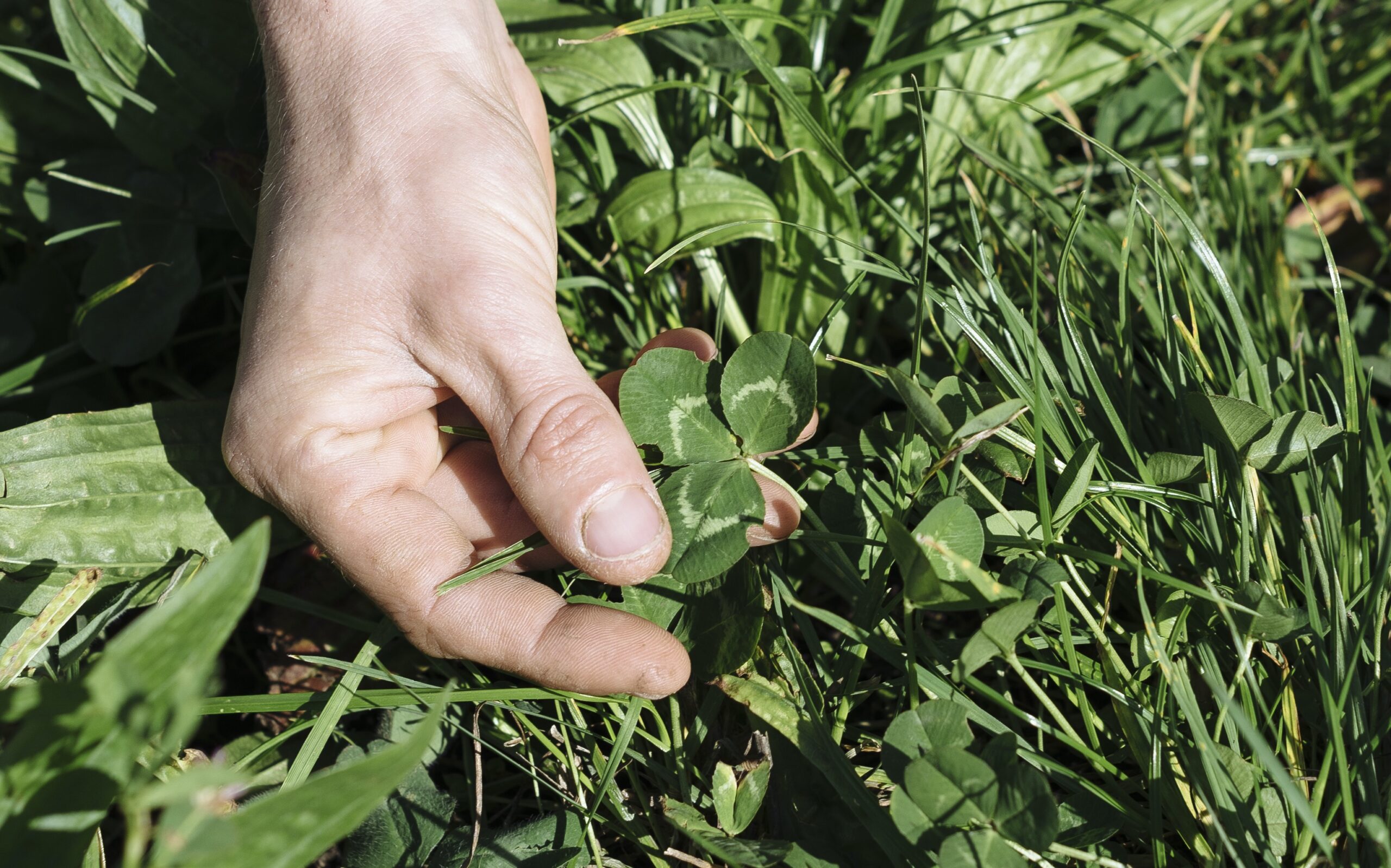
Creating a future for Brazilian dairy farmers
with the Flora project
Dairy farming in Brazil is no easy feat. A combination of poor soil health and high production costs, make it particularly hard for farmers. On top of that, the lands they work on are often neglected, influencing milk quality and quantity.
Flora: Creating a future for Brazilian dairy farmers
Brazil
 Planet
Planet
Dairy farming in Brazil is no easy feat. A combination of poor soil health and high production costs, make it particularly hard for farmers. On top of that, the lands they work on are often neglected, influencing milk quality and quantity.
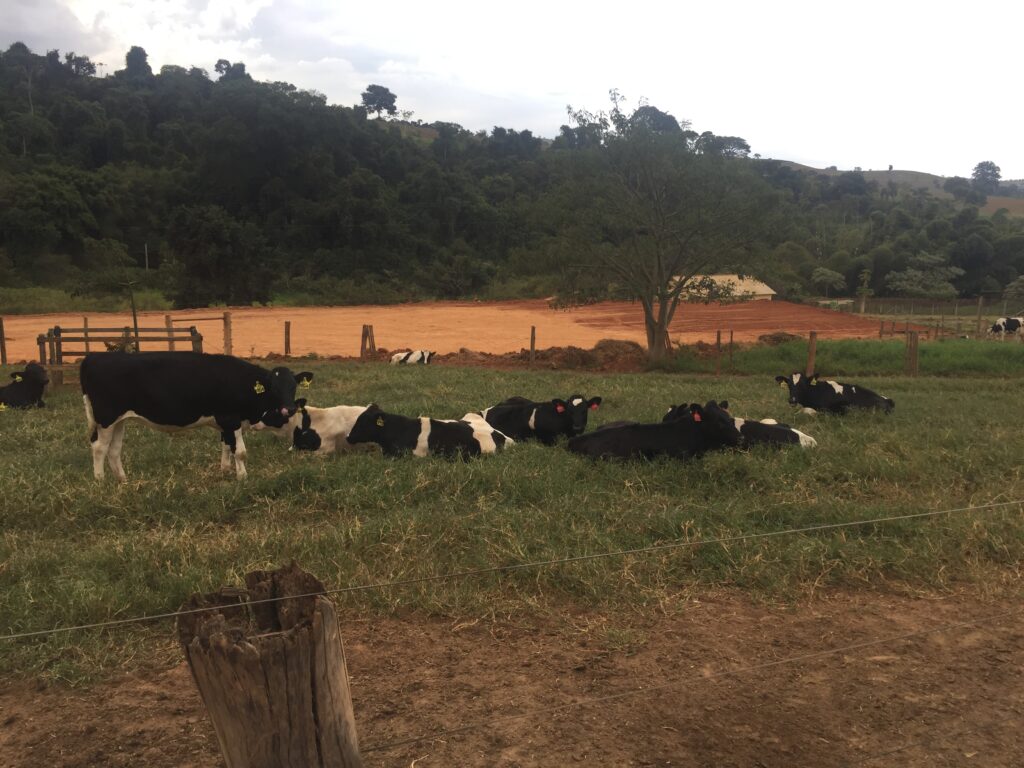
Danone is working with farmers on increasing the milk quality and quantity through the Mais Solidos programme, but even with milk quality incentive programmes, soil health remains a problem that needs solving on a different level. That is where the Flora project comes in.
The state on the ground
There are 200 million hectares of pasture lands in Brazil, 80% of those are at some level of degradation. Specifically, in the state of Minas Gerais, (where Danone Brazil is located) there’re 26 million hectares, most of which are at some level of degradation. This makes our farmers particularly vulnerable to climate change.
Every 11 minutes a dairy farmer in Brazil quits
Bad soil yields fewer crops, holds less water and contains fewer nutrients for dairy cows to feed on. This is a problem that requires a complete turnaround in farming practices.
Flora is a solution on three levels
Environmental friendliness, socially equity and economic viability go hand in hand. Taking care of the environment is more than a responsibility, it aids farmers to keep their soil healthy – and their dairy cows happy.
- +1,5k ton carbon sequestration
- +49% in soil quality
- +222% biodiversity
- +32% in animal welfare
Flora supports through silvopastoral solutions
Together with the Instituto de Pesquisas Ecológicas in Brazil, we are increasing regenerative agriculture practices.
We focus on implementing agroforestry systems, combining forests, trees or shrubs with pastureland. This makes it easier for the farmland to recycle its own nutrients, healing the soil, and enabling it to hold water longer.
Using demo farms to make dairy farming attractive again
In 2019, we started with a demo unit to show the positive impact regenerative agriculture can bring to farmland, farmers and their animals. This demonstrative unit will become a school for other producers, so that they can experience the techniques of regenerative agriculture methods and their benefits.
It’s a place where dairy farmers from all over Brazil can see the benefits for themselves. On the demo farm we do:
- – Recovery of degraded pasture land
- – Soil nitrogen fixation
- – Soil erosion control
- – Carbon capture
- – Production cost reduction
- – Animal welfare improvement
- – Biological pest control
From demo to the future
Danone plans to expand the project with 38 farmers from 3 hectares to 200 hectares over the next five years, diversifying the farmers’ portfolio, increasing their income and the quality of milk, while making them more resilient against a changing climate.

